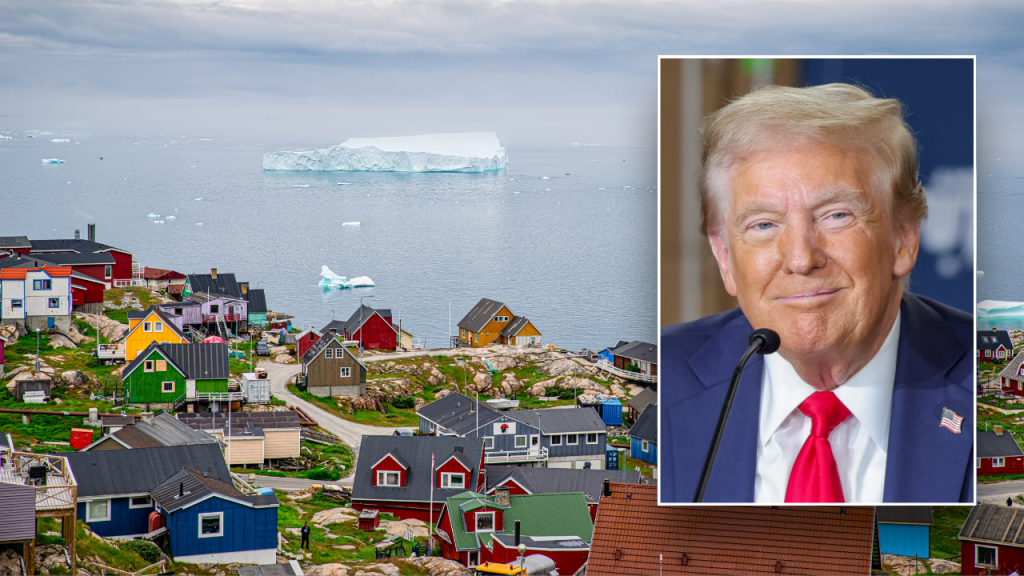President-elect Trump’s renewed interest in acquiring Greenland has sparked a flurry of activity and discussion, punctuated by a characteristically provocative social media post. Trump’s assertion, presented on Truth Social, that the people of Greenland are embracing his “MAGA” movement stems from a video showcasing a Greenlander expressing a desire for the U.S. to purchase the island. This individual, sporting a MAGA hat, voiced grievances regarding perceived economic exploitation by Denmark and a yearning for liberation from Danish governance. Trump’s post amplified this sentiment, reaffirming his plans to visit Greenland and highlighting the impending trip of his son, Donald Trump Jr., albeit in a personal capacity. The president-elect framed the potential acquisition of Greenland as beneficial for both parties, portraying the U.S. as a protector and benefactor while emphasizing the island’s strategic importance and untapped resources.
This latest declaration builds upon Trump’s long-standing fascination with Greenland, which first grabbed headlines in 2019 when he openly floated the idea of purchasing the island. His rationale then, as now, centers on a perceived strategic advantage for the U.S. and a purported financial burden on Denmark, which he claims subsidizes Greenland to the tune of hundreds of millions of dollars annually. The 2019 proposition drew mixed reactions, ranging from bewilderment to outright rejection from Danish officials, who characterized the idea as “absurd.” Greenland’s response, however, revealed a nuanced perspective, with some expressing interest in exploring closer ties with the U.S., albeit stopping short of endorsing outright annexation. The current resurgence of this topic, fueled by Trump’s social media presence and the upcoming visit by his son, reopens these complex discussions about Greenland’s future and its relationship with both Denmark and the United States.
The timing of this renewed interest coincides with significant political shifts, notably the resignation of Canadian Prime Minister Justin Trudeau. While Trudeau’s resignation has been largely attributed to internal party pressure and criticism over his handling of the budget, his complex relationship with Trump adds another layer of intrigue to the unfolding geopolitical landscape. The interplay between Trump’s ambitious Greenland agenda and the changing dynamics within North American leadership adds a layer of complexity to an already intricate situation. It remains to be seen how these factors will influence the future trajectory of U.S.-Greenland relations and the broader dynamics within the Arctic region.
Trump’s pursuit of Greenland reflects a broader pattern of unconventional foreign policy approaches, often characterized by a transactional mindset. He views Greenland’s vast mineral resources and strategic location as valuable assets that could bolster American power and influence. This perspective aligns with his emphasis on “America First” principles and a willingness to challenge established norms in international relations. His rhetoric often frames Greenland’s potential incorporation into the U.S. as a mutually beneficial arrangement, promising economic prosperity and protection for the island’s inhabitants. However, this narrative overlooks the complex historical and cultural context of Greenland, which has long sought to navigate its relationship with Denmark and assert its own identity.
The reactions to Trump’s renewed Greenland ambitions within Greenland itself are likely to be diverse and complex. While some may be receptive to the prospect of closer ties with the U.S., others may view it with skepticism or outright opposition. Concerns about potential environmental impacts, cultural preservation, and the potential erosion of Greenlandic autonomy will undoubtedly shape the public discourse. The video featuring the MAGA hat-wearing Greenlander, while presented by Trump as representative of popular sentiment, may not reflect the broader spectrum of views within Greenlandic society. Understanding the nuances of these internal dynamics is crucial to navigating the sensitivities surrounding this issue.
The international community is also likely to scrutinize Trump’s Greenland pursuit, particularly given the existing geopolitical sensitivities surrounding Arctic resources and territorial claims. Russia, China, and other Arctic nations are closely monitoring developments in the region, and any perceived shift in the balance of power could have far-reaching implications. Denmark’s response to Trump’s renewed interest will be pivotal, as it holds ultimate sovereignty over Greenland. The Danish government has previously rejected the idea of selling Greenland, and it remains unclear whether they would be open to any form of arrangement that would cede control of the island to the United States. The interplay between these domestic and international factors will ultimately determine the feasibility and potential consequences of Trump’s Greenland ambitions.


